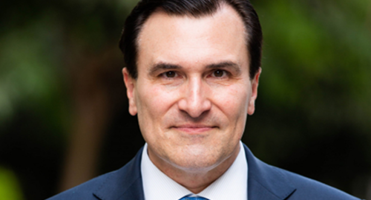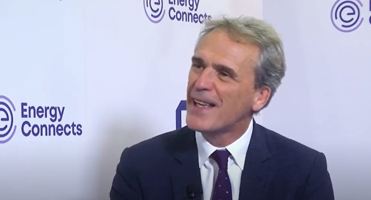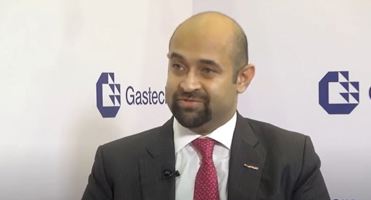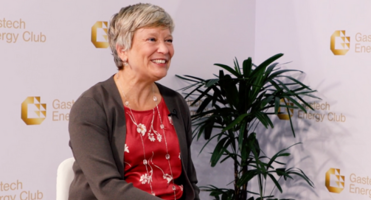Rakhi, you have been working for over 21 years in a traditionally male-dominated industry. How did you end up working in energy? Was this career path ever planned?
I come from a middle-class family with working parents. During my upbringing, financial constraints made it impossible for me to pursue my preferred degrees in engineering or medicine at prestigious out-of-state colleges. Therefore, I chose to pursue Chemical Engineering at an in-state institution, thanks to a full scholarship. Following graduation, I actively participated in numerous campus recruitment drives, primarily conducted by India's regional and National Oil Companies. Despite consistently performing well in interviews, I found myself politely turned away, with the feedback that my skills exceeded their current requirements and was urged to seek better opportunities. Historically, these companies were hesitant to hire female engineers for operational and manufacturing roles due to their predominantly male workforce. However, I refused to let this discourage my enthusiasm. Instead, I made the decision to pursue a master’s degree in chemical engineering. Graduating with high honors, I was offered a position as an ad hoc Assistant Lecturer of Chemical Engineering at my undergraduate school. During this period, I worked and simultaneously prepared and passed the Graduate Aptitude Test in Engineering, securing a fully funded seat for post-graduation in Chemical Engineering at one of India's top-tier institutions – the Indian Institute of Technology Kanpur. This advanced degree equipped me to confront biases prevalent in the energy industry. Subsequently, I pursued various campus placements and secured a position with Johnson Matthey, a global leader in sustainable technologies, at their manufacturing facility in England. This marked my debut in the energy industry in 2004, providing me with invaluable experience in a foreign land and setting the stage for further growth and development in my professional path.
Long story short, my career trajectory wasn't meticulously planned; rather, I navigated it through adaptability, perseverance, and seizing opportunities as they presented themselves. I want to emphasize that life is fundamentally about the choices we make, and each choice shapes our identity and path.
Almost 2,500 firms and over 38,000 employees, women make up for only 13.9% of senior management within the energy composite*. With this in mind, can you describe your personal journey to leadership?
I believe in being transparent, so I won't sugar coat my personal journey to leadership—it hasn't been easy thus far. It's been challenging, demanding yet exciting learning experience. I firmly believe that exercising good judgment, making the right choices, never giving up, and, most importantly, seeking the silver lining in every opportunity are the keys to success. The IEA also notes that the barriers women face in the energy or commodity sector are like those they face elsewhere in the economy*.
Nevertheless, the challenges of the energy sector are more crucial now. Clean energy transitions will require innovative solutions and business models to be adopted and will require greater participation from a diverse talent pool. So, I believe that is a silver lining for us. Adapting yourself and your functional skillset to contribute towards the transformation and climate advocacy will be key.
All I can say is this is the Golden Age for women in energy and women entrepreneurs. I am currently pursuing a Global C-suite Management Program at The Wharton School, and the core modules I have completed thus far highlight how adaptive business and leadership skills makes a person or an organization more resilient and relevant in complex and ever-changing market dynamics.
*Reference: IEA: Energy and Gender
What career or talent resources do you recommend for anyone currently working and/or hoping to dive into the energy/commodities sector?
Advice 1: It’s worthwhile spending time very early in your career to reflect on which functional area or segment you want to work within.
The energy industry is diverse and there is a multitude of career pathways, each with its own unique opportunity. Make sure you give equal weightage to both your passion and profession when choosing your career pathway.
I have always had a passion for public speaking, leadership, communications, and customer and industry engagements, but I only started my podcast Energy Insights with Rakhi at the age of 38 and eventually made it to a front-end external stakeholder-facing role after 15 years of being in the energy industry. This was only 4 – 5 years ago! Although it is never too late, I wish I had started preparing and pursuing my passion at the start of my career. Timing is everything and self-reflection goes a long way!
Advice 2: Join professional associations, resource groups and working groups as early as you can in your career:
Professional groups offer opportunities to engage with like-minded peers and leaders, offering exciting opportunities to hear the lessons they’ve learnt through real life experiences. It also provides you with an extensive platform for networking and helps to create an ecosystem on which you can rely when you need professional advice. The COVID-19 pandemic has catalysed a surge in virtual connectivity, offering a wealth of valuable resources right at our fingertips. Platforms such as Wood Mackenzie, S&P Global Platts, and others now host webinars, virtual discussion rooms, forums, and resource groups, all accessible at no cost.
These avenues provide invaluable opportunities to delve deeper into topics such as emerging technologies and renewables. It's essential to seize these opportunities and remain proactive in your learning journey. By staying engaged and continuously updating your knowledge, you can stay ahead of the curve in the constantly evolving landscape of the energy industry.
Advice 3: BIG – ‘Believe in Giving Back’. This is my self-crafted terminology.
I started contributing on LinkedIn 4 years ago, posting about Energy, Sustainability, Inclusivity and Empowerment. By doing so, I hold myself accountable to consistently contribute to the oil and gas community, as well as broadening my own knowledge base by hearing different perspectives on my posts. I am consistently striving to create market credibility as well as embracing my continued learning. These posts are my personal commentary on market outlooks and trends, along with strategies and technological advancements toward a responsible energy transition.
What has been your biggest achievement to date?
I cannot pinpoint a single achievement as my biggest, as there have been numerous highlights. I would say the years 2022 and 2023 were particularly pivotal for me. Among my notable accomplishments during this period are:
- 3 Global Oil and Gas Awards as a Climate Champion and Energy Transition advocate, including the Global Ambassador Power Play Awards by ExxonMobil – presented during Gastech 2023 in Singapore.
- Invitations to speak at more than a dozen global energy conferences and executive roundtables, which surely helped me to keep my saw sharp.
- Authored several international publications and articles in leading energy journals & magazines.
- Mentored several high school girls and women in early stages of energy careers – this one is particularly close to my heart.
- On the verge of completing my Sr. Executive Management Program at The Wharton School.
- Finally, celebrating numerous successes of my 15-year-old daughter and 11-year-old son along with my husband.
I strongly advocate for acknowledging and celebrating successes, both individually and as part of a team. Such recognitions are integral to one's leadership identity and serve as powerful reminders that effective goal setting fosters team cohesion and ensures positive outcomes.
What are you most looking forward to at Gastech 2024?
I have been actively involved with Gastech since 2017, initially as a delegate/ exhibitor, then as a speaker, and now as a member of its Governing Body.
It's truly remarkable to witness the evolution of Gastech over the years, maintaining its position as a pioneer in energy markets and discussions. Naturally, my expectations for this event are exceptionally high, especially considering its occurrence in Houston this year – the energy capital of the world. The location definitely adds an extra layer of significance.
I am eagerly anticipating the opportunity to explore various strategies from different perspectives: international energy markets, policy and geopolitics, company strategies, new supply chains for achieving net zero, climate and sustainability initiatives, as well as advancements in technology and innovation.
The ongoing shift towards a multi-dimensional and multi-fuel energy transition is reshaping the energy landscape for both companies and countries. With 800 exhibitors from around the world showcasing their expertise under one roof, covering areas such as natural gas, LNG, hydrogen, climate technologies, and low-carbon solutions, Gastech 2024 will surely be enlightening and will provide a strong platform to understand the multi-dimensional energy transition.
I am particularly excited about engaging first-hand in discussions with pioneers in emerging technologies like CCUS/H2 and other climate technologies, who will be showcasing their innovations. In the realm of new energy, my interest lies in exploring integrated low-carbon hubs globally and analysing US developers and Asian gas from a security of supply-demand perspective. For this, I would hugely count on the plenary sessions, strategic dialogues, and leadership discussions. Overall, Gastech 2024 holds tremendous potential for learning, networking, and gaining insights into where the future of the global energy industry is heading.
What do you want to see more of (in relation to DEI) at Gastech 2024 but also throughout the wider energy industry?
Indeed, Diversity, Equity, and Inclusion (DE&I) have been prominent topics in the energy discourse for years, and significant strides have been made in articulating strategies to support these initiatives.
While it is crucial to have well-defined strategies in place, true progress can only be achieved through tangible actions that foster a culture of inclusivity and equality within the industry. This involves implementing concrete measures to ensure that diverse perspectives are not only welcomed but actively sought after and integrated into decision-making processes at all levels of Gastech and/or organization.
I will underscore the pivotal role of diversity as a cornerstone for any business or industry striving to establish itself as a beacon of trust. Diversity, encompassing a range of perspectives including race, thoughts, age, gender, and ethnicity, serves as a potent catalyst for driving meaningful change, mitigating risks, and nurturing transformative partnerships.
Now, teeing this to Gastech or the wider energy industry – it is imperative to prioritize diversity considerations when appointing members to governing boards, appointing executives, participation in strategic discussions, leadership dialogues, and selecting speakers and moderators. I would like to clarify that when I mention diversity, it encompasses all perspectives and lenses, not just gender diversity. It's about welcoming and embracing a wide range of backgrounds, experiences, and viewpoints to enrich discussions and drive innovation in the energy sector. Youth-led perspectives could be an invaluable addition to the Gastech energy discussions, offering fresh insights and helping to future-proof the leaders of the next generation.
In addition to the points above, initiatives like the Power Play Awards, supported by Gastech, play a vital role in promoting diversity and inclusivity across all levels of organizational hierarchy as well as within the energy industry. By championing initiatives like the Power Play Awards, we not only foster a culture of inclusion but also inspire and empower future leaders to drive positive change and innovation in the energy sector.
What is one last piece of advice you’d like to share with the Gastech community?
Dare to make bold, impactful decisions and stand firmly behind them with resilience. One of the toughest challenges many women have and will continue to encounter is making trade-offs, but leadership and success do not hinge on achieving balance; they require making strategic trade-offs. Gender inequality and the climate crisis stand as two of the most pressing issues of our time. It's crucial that we recognize and address the vital links between gender, social equity, and climate change, and take decisive action towards actionable solutions. As we strive towards excellence in the energy industry, we will need to collaborate cohesively at all levels.































































